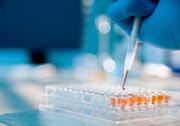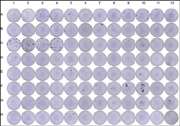Your basket is currently empty!
Immunotoxicology Testing
Immunotoxicology Testing at ProImmune
What you need to test
Immunotoxicology testing requires detailed investigation of an immune response. It is important to be sure that the assays you choose give you the information you need to solve the question of why a new drug has an adverse effect on the immune system.
ProImmune’s advanced technologies in evaluating cellular and humoral immune responses can help you understand the immunotoxicology of your compound, including:
- Immunosuppression: Decreased immune function that can be resolved into the cellular compartment responsible.
- Immunogenicity: Reactions elicited by a drug, its metabolites, excipients, or contaminants
- Hypersensitivity: Sensitization to a drug, its metabolites, excipients, or contaminants as well as the potential for first infusion reactions (cytokine storm)
- Adverse immune stimulation: Activation of immune effector mechanisms through a variety of pathways.
We can perform many standard measurements for you, and retain the ability to design studies that answer more complex questions. These include studies of alteration of the function of dendritic cells and perturbation of antigen specific T and B cell responses.
[ezcol_1third] [/ezcol_1third][ezcol_1third]
[/ezcol_1third][ezcol_1third] [/ezcol_1third][ezcol_1third_end]
[/ezcol_1third][ezcol_1third_end] [/ezcol_1third_end]
[/ezcol_1third_end]
We manage whole studies for our customers, from donor recruitment to data reporting.
Sourcing a donor cohort
It may be crucial to test your drug’s effect using cell samples from a particular subset of the population, for example those with known allergies, or those aged over 50.
ProImmune has the capability to carry out in vitro studies on cellular and serum samples derived from donors from two sources:
- Pre-banked cryopreserved PBMCs in our general tissue bank are fully HLA tissue typed and can be matched to the tissue type distribution of the world-wide population or any specific population sub-group.
- Fresh blood samples can be sourced specifically for your study from a population group matching your study criteria, including age and some disease states.
Assays that can be used to measure immunotoxicology
We have developed expertise in a range of assays, all of which can be adapted to look at aspects of immunotoxicology. We can perform:
- Dendritic cell culture and function
- Measurement of antigen processing and presentation on dendritic cells to resolve and sequence peptides presented on class I and class II MHC molecules
- T cell proliferation assays including dendritic cell T cell proliferation assays
- Recall immune response assays including T and B cell ELISpot
- Multiplexed 8 colour flow cytometry
- MHC Pentamer staining to resolve antigen-specific CD8+ T cell immune responses
- CD1d-αGalCer tetramer staining to analyze an iNKT cell response
- High throughput serological assays using tiny sample volumes on our novel protein microarray platform
- MHC binding assays on over 50 MHC molecules, including HLA class I and II as well as mouse and macaque alleles
- HLA Tissue typing
The value we add
With our specialist experience in human immunology as well as our ability to source samples from large donors cohorts, we can address questions that are beyond the capabilities that you may have in-house or with your generalist CRO. The data obtained from in vitro human cell experiments we perform can add depth to the interpretation of results obtained in model systems.
Questions that we have previously answered:
- How does a new drug candidate modulate a helper T cell response? We used a recall response in adults to a childhood vaccine as a model to test this. We designed an ELISpot assay to measure this recall response and carried it out with the test article on a cohort of donor samples sourced specifically for the study.
- How does a protein modification change the spectrum of antigens presentation from that protein, modulating its immunogenicity? The modified and unmodified proteins were provided by our customer and we carried out our ProPresent® Antigen Presentation Assay on a range of samples from our donor bank to investigate.
- How does formulation affect whole-protein immunogenicity? We compared batch to batch variability of a drug by measuring proliferation in different T cell subsets in response to each batch.
- In detail, how does a new drug interact with HLA molecules? We designed a modified version of our HLA binding assays to derive detailed HLA-binding information for our customer’s therapeutic.
To discuss the specialist requirements for your study please contact our customer service team today.
